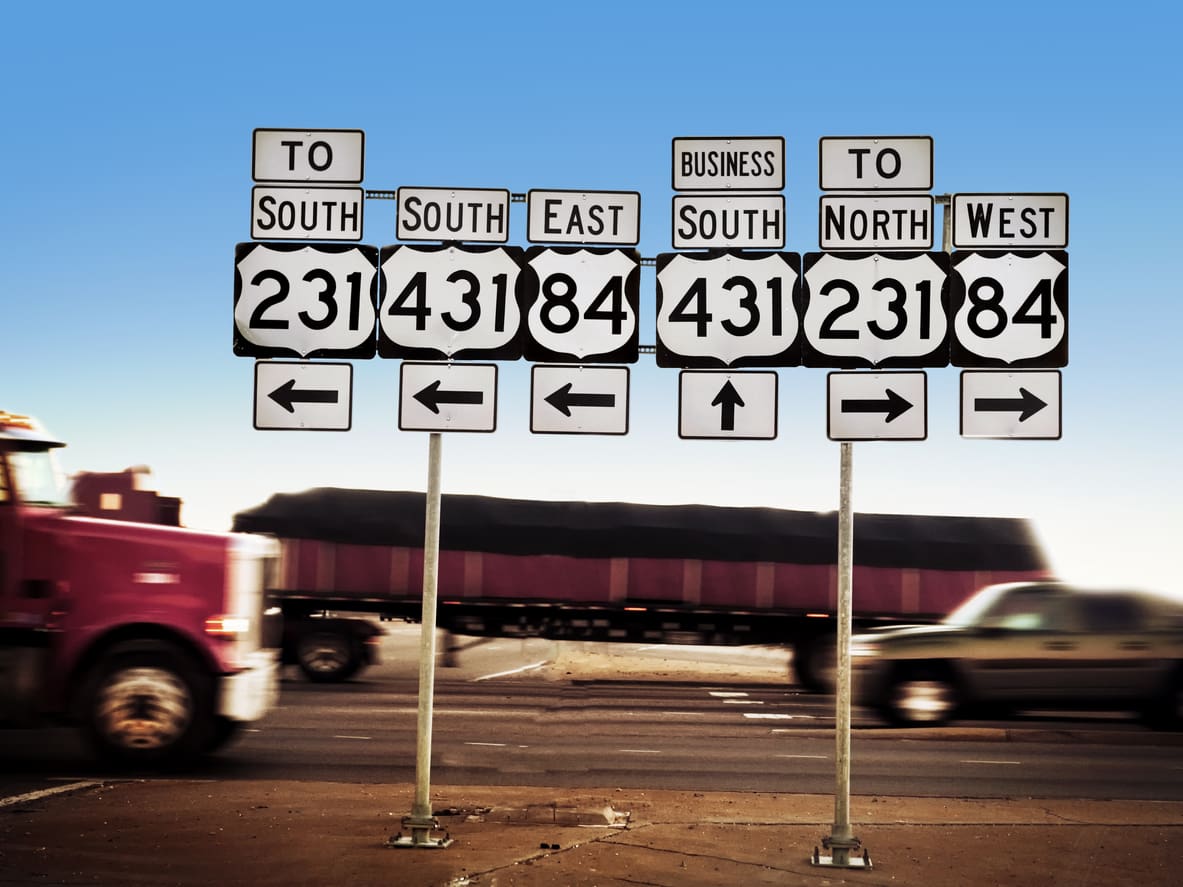Understanding State Trucking Regulations
Navigating the world of trucking is not just about hitting the open road and transporting cargo across the country. It also involves understanding and adhering to a complex web of state trucking regulations that differ from state to state. Truck drivers and fleet operators must ensure their vehicles comply with various rules, including weight limits, hours of service (HOS), permits, and safety regulations. Failing to comply with these laws can result in fines, penalties, or even the suspension of operating rights.
This guide provides a detailed breakdown of essential state trucking regulations and explains how drivers can stay compliant while crossing state lines.

Why State Trucking Regulations Matter
While federal trucking regulations provide a broad framework for safe and efficient commercial trucking operations, each state has the authority to impose its own specific rules. These state-specific regulations cover a wide range of topics, from weight restrictions on bridges and roads to special permits required for oversized loads.
For truck drivers, understanding state trucking regulations is crucial because what is legal in one state may not be permissible in another. Non-compliance can result in severe penalties, and even minor infractions can delay delivery schedules, reduce profits, and tarnish a company’s safety record.
For instance, a trucker traveling from Florida to California might face different requirements for fuel taxes, speed limits, and load restrictions depending on the states they pass through. Being well-versed in these differences helps ensure smooth and efficient operations.
The Role of the FMCSA and State Authorities
The Federal Motor Carrier Safety Administration (FMCSA) sets the primary regulations for commercial trucking in the United States, but states also have the authority to regulate trucking within their borders. While the FMCSA focuses on interstate trucking—transportation across state lines—state departments of transportation (DOTs) govern intrastate trucking, which occurs solely within a state’s boundaries.
These state agencies are responsible for enforcing local rules concerning:
- Weight limits
- Licensing and permits
- Road and bridge restrictions
- Cargo restrictions
- Tax requirements (such as International Fuel Tax Agreement (IFTA) filings)
Drivers and fleet managers need to stay updated on both federal and state regulations to avoid fines and delays.
Key Areas of State Trucking Regulations
Each state may have its own set of rules, but there are a few key areas where state trucking regulations often differ. Understanding these categories will help truckers stay compliant and avoid headaches while on the road.
Weight Limits and Overweight Permits
One of the most common areas of state-specific regulation is the weight of commercial trucks. States impose gross vehicle weight (GVW) limits to protect roads and bridges from excessive wear. Most states adhere to the federal standard of 80,000 pounds for interstate travel, but some states allow higher weight limits for trucks operating solely within their borders.
If a truck exceeds the allowable weight, the driver must apply for an overweight permit, which grants temporary permission to operate the vehicle under certain conditions. These permits may vary by state and are often required for oversized or overweight loads that exceed federal weight standards.
For example:
- Michigan allows for heavier axle weights than most other states, especially for vehicles involved in forestry or agriculture.
- California has strict enforcement of weight limits on state highways, and obtaining an overweight permit can involve several layers of approval.
Failing to secure the necessary permits can result in costly fines and delays, so it’s crucial to plan ahead when transporting heavy loads.
Hours of Service (HOS) and State Variations
The FMCSA regulates the number of hours a truck driver can operate their vehicle through the Hours of Service (HOS) rules. However, certain states may impose additional restrictions or allowances, especially for intrastate trucking. These HOS rules are designed to prevent driver fatigue and ensure road safety, but the regulations can vary slightly based on state-specific needs.
For instance:
- Texas has different HOS rules for drivers who operate entirely within the state’s borders, allowing for longer on-duty periods in certain cases.
- California enforces stricter breaks and rest periods for intrastate drivers, mandating longer off-duty times compared to federal HOS rules.
Truckers who frequently cross state lines must be mindful of these variations, especially when operating within a single state for extended periods. Keeping accurate logs and understanding state-specific HOS rules ensures compliance and reduces the risk of penalties during inspections.
Licensing, Permits, and Registration
Another critical area where state trucking regulations vary is in the licensing, permits, and registration requirements for commercial vehicles. Every state requires commercial truck drivers to have a valid Commercial Driver’s License (CDL), but the process of obtaining and renewing a CDL, as well as the endorsements needed, can vary significantly.
States also require special permits for hauling hazardous materials, oversized loads, or specialized cargo. These permits are typically issued by state DOTs and must be applied for in advance of any transportation that requires them.
- Hazardous Materials Endorsement (HME): Drivers carrying hazardous materials must apply for an HME in addition to their CDL. Some states, like New York and Massachusetts, require additional background checks or security assessments before issuing an HME.
- Oversized Load Permits: Truckers transporting wide or long loads must obtain state-specific permits. North Dakota, for example, has less restrictive rules on wide load permits compared to New Jersey, where permits are harder to obtain.
Failure to obtain these permits or endorsements can lead to heavy fines, impoundment of the cargo, or even suspension of driving privileges.
State Fuel Tax Compliance (IFTA)
The International Fuel Tax Agreement (IFTA) is a tax agreement between the lower 48 states and Canadian provinces to simplify fuel tax reporting for truckers who operate in multiple jurisdictions. Instead of filing individual fuel tax reports for each state, truckers file a quarterly IFTA report that consolidates their fuel purchases and miles driven in each state.
However, each state has its own process for enforcing fuel tax compliance, and truckers must be diligent in keeping accurate records. States can audit IFTA filings, and discrepancies in reporting can lead to penalties. For example, Colorado may audit a trucker’s fuel usage for IFTA compliance differently than Florida, requiring more detailed documentation of fuel receipts and mileage.
Ensuring proper fuel tax documentation is especially important for truckers who frequently cross state lines.
Road and Bridge Restrictions
States impose various restrictions on certain roads, bridges, and tunnels to prevent damage from overweight or oversized trucks. These restrictions can change based on the time of year, road conditions, or construction projects. For example:
- Colorado restricts trucks on specific mountain passes during winter months due to snow and ice.
- New York City has strict bridge weight and height limits that can differ from those in upstate New York.
Before beginning a route, truckers should check state-specific restrictions to avoid detours or violations.
Compliance with Environmental Regulations
States like California have some of the strictest environmental regulations in the country, particularly regarding emissions from diesel trucks. The California Air Resources Board (CARB) enforces rules that require older trucks to meet new emissions standards or be retrofitted with approved technology. Non-compliance with CARB regulations can result in significant fines and vehicle impoundment.
States in the Northeast, including New Jersey and Massachusetts, also have strict environmental laws governing truck idling and emissions. Staying compliant with these regulations is crucial, especially when operating in states with tough environmental enforcement.
Penalties for Non-Compliance
Failing to comply with state trucking regulations can result in a range of penalties, from fines and delays to the suspension of driving privileges or even impounding the vehicle. In some cases, non-compliance can lead to out-of-service orders, preventing the truck from continuing its journey until the issue is resolved.
Common penalties include:
- Fines for Weight Violations: Overweight trucks may face steep fines, which can increase with the degree of the violation. Some states, like Washington, impose escalating fines for trucks that exceed the weight limit by several tons.
- License Suspension: States can suspend a driver’s CDL for repeated violations of state-specific laws, such as not adhering to weight limits, hours of service, or safety requirements.
Staying Updated on State Trucking Regulations
Because state trucking regulations can change frequently, truck drivers and fleet managers must stay informed. The best way to stay compliant is to:
- Subscribe to updates from state DOTs and regulatory agencies.
- Use GPS and routing tools that include information about state-specific restrictions.
- Keep up with industry publications and attend trucking safety courses that focus on regulatory compliance.
Staying proactive ensures smooth operations, fewer delays, and a safer driving experience.
Navigating State Trucking Regulations for Long-Term Success
State trucking regulations may seem complex, but understanding them is vital for safe, compliant, and efficient trucking. Truckers who take the time to stay informed about state-specific rules—whether it’s weight limits, fuel taxes, or environmental regulations—will find fewer obstacles on the road. By following these guidelines and adhering to state trucking regulations, drivers and companies alike can ensure that their operations run smoothly, avoid penalties, and maintain an excellent safety record across the board.
Frequently Asked Questions
What are the key areas where state trucking regulations differ?
State trucking regulations often differ in areas such as weight limits, permits, hours of service, fuel tax compliance, and environmental regulations.
Do states have different weight limits for trucks?
Yes, some states may have higher or lower weight limits than the federal standard of 80,000 pounds, especially for intrastate trucking. Oversized loads may require state permits.
How do hours of service (HOS) regulations vary by state?
While the FMCSA sets federal HOS standards, states like Texas and California may have specific variations for intrastate drivers, including longer or stricter rest periods.
What is IFTA, and how does it affect truck drivers?
IFTA is an agreement between U.S. states and Canadian provinces that simplifies fuel tax reporting for truckers who operate in multiple jurisdictions. Each state has its own enforcement of IFTA rules.
Do truck drivers need special permits for hazardous materials in every state?
Yes, truck drivers carrying hazardous materials must obtain a Hazardous Materials Endorsement (HME) and may also need state-specific permits, depending on the cargo.
What happens if a truck driver doesn’t comply with state trucking regulations?
Non-compliance with state trucking regulations can result in fines, license suspensions, or out-of-service orders, which may prevent the truck from continuing its journey.
Get Started
Get your Class A CDL in our friendly, supportive CDL training program. TRAIN with experienced instructors – multiple good-paying, secure job choices with benefits available for eligible graduates. EARN $700 – $1000+ / week to start as a truck driver. Get started today by filling out the form below. We look forward to hearing from you!



